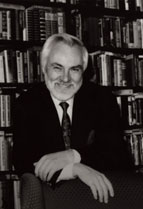While the Tanenhaus Brownie Watch may be discontinued, Levi Asher has picked up the slack with his “Reviewing the Review” blog posts. This week, Mr. Asher made the claim that “The Book Review continues to prove that it has no capability at all to review poetry.” While I can certainly agree that its poetry coverage leaves little to be desired, in large part because of the self-described “vulgarian” whims of its editor, I felt the need to leave a comment noting that there has been one critic during Tanenhaus’s run that has done a competent job at reviewing poetry: David Orr.
While I’ve had my quibbles with Mr. Orr in the past, Mr. Asher challenged me to limn just what it was about Orr that made him “very good.” It’s a fair enough question, seeing as how Asher has called Orr “hopelessly square.”
First off, if the NYTBR‘s purpose is to profile smart and well-informed reviews that straddle the fence somewhere between layperson and elitist New York Review of Books subscriber, then any decent poetry critic must divagate within this territory. And I feel that Orr has done this quite well, daring to challenge icons, introducing poetry to a readership without making it dull, and shifting the focus away from a poet’s public perception to the words that the poet has written with a deft and playful touch. Take, for example, this recent review of an Elizabeth Bishop collection. It introduces Bishop to the uninformed and subtly guides the reader into contact with her poetry instead of Bishop’s reputation, establishing and comparing such qualifiers as “difficulty” and “subtlety,” and using these terms to segue into the text of “Vague Poem.” He playfully suggests that more people know the lyrics to “Total Eclipse of the Heart” than Bishop’s poetry, which suggests someone attuned to pop culture (certainly a lot more than a closet fetishist like Leon Wieseltier or Dave Itzkoff, who has only recently discovered that chicks write speculative fiction too).
Then there is this review from November 2004, which challenges the qualifiers behind The Best American Poetry series, clearly outlining the history of these compilations, while suggesting that the bar may be set too low and imputing that “poetry isn’t really an open system; it’s a combination of odd institutions, personal networks, hoary traditions, talent and blind luck” to the NYTBR‘s democratic reading base.
Hopelessly square? Even Mr. Asher had to applaud Mr. Orr when he took Jorie Graham to task. What we have is a poetry critic with a mischevious streak that is far from Pat Boone. I’m under no obligation to acknowledge the positive, but Orr’s poetic review of Billy Collins’ The Trouble with Poetry was one of the few interesting reviews under Sammy Boy’s tenure. One does not expect such exuberance from a lawyer, much less from a publication whose editor cannot appreciate a brownie or an intelligent woman. But, alas, there it is.
I have no idea what’s made Orr’s work sparse in the NYTBR these days. Perhaps it’s Sammy T’s tone-deaf editorialship. But Orr was a welcome presence within a hopelessly corrupt publication. And I contend that if there was one thing Sammy Baby did do right, it was hiring David Orr.


 It is no secret that I, Otto Penzler, can
It is no secret that I, Otto Penzler, can 